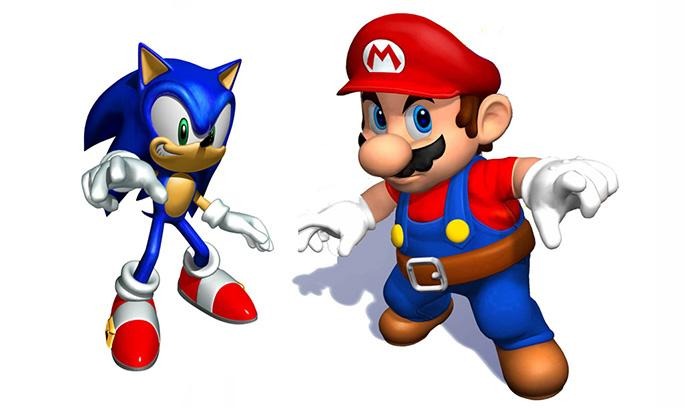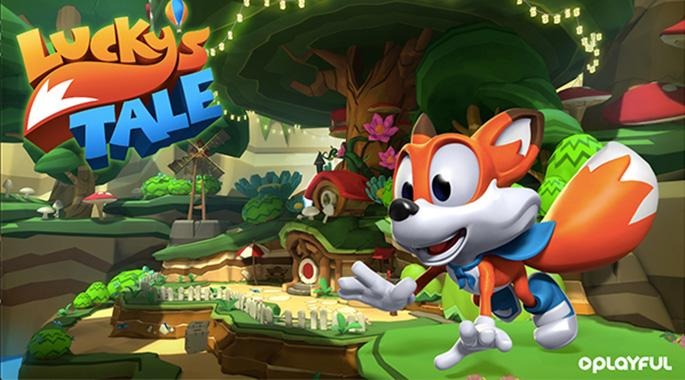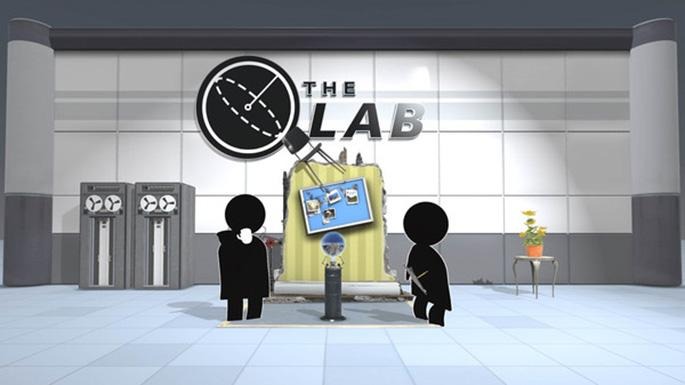Fractured VR: Will Exclusive Titles Kill VR Before It Takes Off?
Exclusive titles are nothing new to the world of gaming. Man fan-favorite games are only available on one console or another. One of the biggest reasons for this is due to the fact that they're first-part titles, meaning that Microsoft, Sony, or Nintendo is behind the game's development. We all accept these exclusives, because that's just the way it's always been, and each company has the right to use their first-party titles to sell their hardware. But now this issue is affecting a new area of gaming: VR.
If platform exclusivity has been around for decades, it shouldn't be that big of a deal to see it on VR, right? Unfortunately, I think that this is one case where exclusive titles could not only hurt a brand, but could stagnate the future of virtual reality.
For me, modern video game history starts after the great video game crash in 1983. Perhaps it was because I was born in 1984, but I also feel like the industry changed so drastically after this period, that it can be considered the modern era. So in this article, anything I'm referencing really starts after this point.

Back in the early days of consoles, there were two names to know: Mario and Sonic. For years, Mario was the face of video gaming as we knew it. He starred in a number of Nintendo's popular games, and no other mascot could come close to his popularity. At least not until Sonic hit the scene in the early 90's. Soon, an all-out war between the Nintendo and Sega ensued, with both companies trying to convince consumers that they had the best product.
Now we have a new battle on our hands. Specifically, the HTC Vive, and the Oculus Rift. These are the only two serious competitors in the VR market, and while we'll eventually see the PSVR launched later this year, they're fighting in a unique marketplace. After all, both the Vive and Rift are pieces of PC hardware. And unless a game takes advantage of some exclusive hardware functionality (such as the Vive's room-scale VR) you would think that nearly every title should work on both, right?
Earlier this week it was announced that Square Enix's Hitman Go would have a special VR version of the game released. The game was originally a mobile title, which was ported to the PC earlier this year. The desktop version of the game is available on Steam, and you would think that the VR version would be available on the same platform, for you to play with whichever headset that you happen to own.

Unfortunately, with the announcement came the news that it would be exclusive to the Oculus platform. And to ensure that you wouldn't be able to force the game to work on your Vive, it wouldn't be coming to Steam. You'd need to buy it through the Oculus store. And to me, that's a huge problem.
So what's different between Nintendo and Sega fighting it out with their exclusive titles, and mascots in the 90's, and the VR exclusives that we're starting to see today? The biggest one is hardware.
The consoles designed by Nintendo and Sega were very different inside. Which meant that programming games for both consoles could take a considerable amount of time. This meant it made more sense for developers to just focus on one. This isn't the case with the Vive and the Rift. While some consideration for the technologies in the headsets has to be taken into account, the games are still being designed to work on a PC.
We already know that some Oculus-exclusive titles can play on a Vive without too much work, thanks to a hack known as Revive. Sure, some of the games need to have their inputs tweaked and such. But the fact that fans can create a method of running games like Lucky's Tale on their Vive shows that the issue is more one of Oculus closing their platform, rather than it being a technical limitation.

The real question is why fracturing the VR user base is bad, and how it could be potentially be destructive to the community.
The biggest reason here is cost. Without even looking at the cost of building a VR-capable PC, you have to spend at minimum $600, if you want motion controls, now it's more like $800. If most of the games that are coming out will be compatible with both headsets, you'll be confident in your choice. Sure, one will have advantages that the other doesn't, but that's no different than choosing between an Xbox One, or PS4.
But as it stands, consumers are starting to see that exclusivity very well may be a big factor in this early generation of virtual reality. And if you're on the fence about spending $600+ on a video game platform, you might feel better about simply waiting until you can feel more confident about which one will provide the games that you're wanting to play.

This leads us to another concern. Right now, if you want to buy either headset, you'll have a lengthy wait. If your headset isn't due to ship for two months, that's a long time to feel buyer's remorse, before you've even gotten your hands on the product you ordered.
Right now, we're seeing a new gaming platform in its infancy. And while for the most part, it seems like virtual reality is ready to take off, it only needs a few big stumbling blocks for companies to lose interest in developing it further. When it comes to established markets, such as consoles, exclusive titles can make the difference between someone buying one or the other. However, with something as new as virtual reality, exclusive titles can mean the difference between the entire platform living or dying.
Personally, as someone who has used both major headsets, and had a lot of fun with them both, I think what we need is cooperation. Each has their strengths and weaknesses, and consumers will flock to one or the other based on those. However, if you start fracturing your potential user base before you can even get your headsets into peoples' hands, you risk people losing faith in the entire platform.
